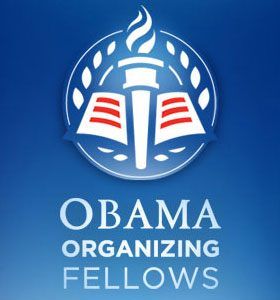Lucy Craft Laney
When I was a child, my uncle Govan Stevens would tell us stories of his years growing up in Georgia in the early 1900s.He talked about how hard life was growing up on a farm and being a negro in the south made things harder.
God blessed him when he met Ms. Lucy Laney founder and principal of the Haines Institute in Augusta, Ga.
He wanted us to know that this was a special women she inspired him and pushed him to learn all he could and do his very best .
Lucy Craft Laney is Georgia's most famous female African American educator. The founder and principal of the Haines Institute for fifty years (1883-1933),
She was born on April 13, 1854 in Macon, Georgia, one of ten children, to Louisa and David Laney during slavery. Her parents, however, were not slaves. Her father was a Presbyterian minister and a skilled carpenter who, having once been a slave, had bought his freedom 20 years before Lucy was born. He had also bought his wife’s freedom.
Lucy’s early childhood days were spent in the Macon home where her mother worked as a maid for Miss Campbell, who taught Lucy to read at the age of four
When the Civil War came to an end, it was Lucy’s father who rang the bells of Washington Avenue Presbyterian Church to celebrate emancipation. In the years following emancipation, the Freedman’s Bureau and the American Missionary Association founded a high school for African American children in Macon, where the Medical Center now stands. Young Lucy attended it until, at the age of 15, In 1869 she was chosen to enroll in the newly founded Atlanta University. In 1873 she was a member of its first graduating class. graduating from the Normal Department (teacher's training) . Women were not allowed to take the classics course at Atlanta University at that time, a reality to which Laney reacted with blistering indignation.
After teaching in Macon, Savannah, Milledgeville, and Augusta for ten years, "Miss Lucy," as she was generally known, began her own school in 1883 in the basement of Christ Presbyterian Church in Augusta.
She combined a boundless faith in the ability to learn with the highest expectations of achievement. In Augusta she found the warmest support for a school, and her friends from the Presbyterian Church and the Freedman’s Bureau persuaded her to start a new school there. She began teaching in the lecture room of Christ Presbyterian Church to only six children, but soon more than 200 children were in attendance.
Lucy Craft Laney's school, founded in 1883, was chartered by the state three years later and named the Haines Normal and Industrial Institute.
Originally Laney intended to admit only girls, but several boys appeared and she could not turn them away. Laney began her lifelong appeal for funding for her school by traveling to a meeting of the General Assembly of the Northern Presbyterian Church in Minneapolis in 1886. She addressed the assembly but received only her fare home. She did, however, obtain the confidence of a lifetime benefactor, Mrs. Francine E. H. Haines, for whom her school was named. By 1912 the Haines Institute employed thirty-four teachers, enrolled nine hundred students, and offered a fifth year of college preparatory high school in which Laney herself taught Latin. Haines graduates matriculated at Howard, Fisk, Yale, and other prestigious colleges, where they reflected the confidence and pride that Laney and her staff had instilled in their students.
Haines not only offered its students a holistic approach to education but also served as a cultural center for the African American community. The school hosted orchestra concerts, lectures by nationally famous guests, and various social events. Laney also inaugurated the first kindergarten and created the first nursing training programs for African American women in Augusta.
Knowing how difficult it was for black students to get into college, Laney provided rigorous academic training for her students. They studied English, mathematics, history, chemistry, physics, psychology, sociology, French, and German. Laney's mission was to turn out a generation of women teachers and community leaders who would regenerate the African-American community and become the source of its salvation. "The educated Negro woman, the woman of character and culture, is needed in the schoolroom, not only in the kindergarten and primary school, but in the high school and the college. Not alone in the classroom but as a public lecturer she may give advice and knowledge that will change a whole community and start its people on the upward way."
Ms. Lucy had the courage and the moral stature to hold young people accountable to the highest standards and to bring out their best selves.
In Augusta Laney helped to found the local National Association for the Advancement of Colored People (NAACP) chapter in 1918, and she was active in the Interracial Commission, the National Association of Colored Women, and the Niagara Movement. She also helped to integrate the community work of the YMCA and YWCA. Her friends and students included Mary McLeod Bethune, Charlotte Hawkins Brown, Nannie Helen Burroughs, W. E. B. Du Bois, Joseph Simeon Flipper, John Hope, Langston Hughes, Mary Jackson McCrorey (the associate principal at Haines from 1896 to 1916), William Scarborough, Martha Schofield, Madame C. J. Walker, Richard R. Wright Sr., and Frank Yerby. Laney died in 1933.
Lucy Laney is buried on the grounds of the school that now bears her name, on a major Augusta boulevard that also bears her name. Her portrait hangs in the Georgia State Capitol.
My uncle always said that Lucy Laney was the person who helped him most in his life. He went on to Lincoln University in Pennsylvania,then became a Presbyterian minister











































No comments:
Post a Comment